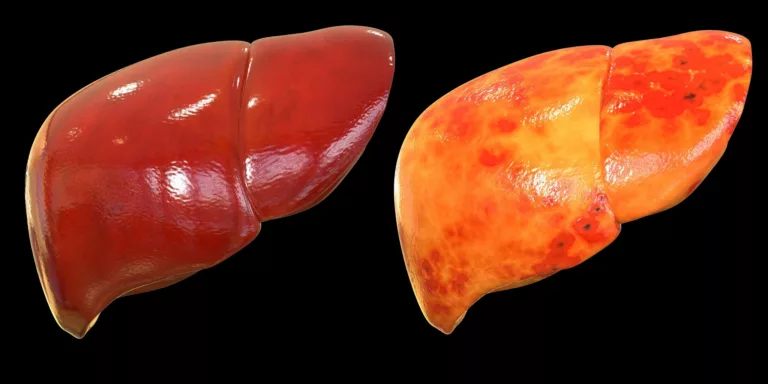Introduction: Decoding the Ketogenic Diet
Are you eager to learn about the wonders of the ketogenic diet? Look no further! In this article, we will delve into the intricacies of how keto works and shed light on the science behind this popular dietary approach. Whether you’re a health enthusiast, someone seeking to lose weight, or simply curious about the keto phenomenon, join us as we uncover the secrets behind this fascinating diet.
How Keto Works: Understanding the Basics
Before we dive into the details, let’s start by grasping the fundamental principles of how keto works. At its core, the ketogenic diet is a low-carbohydrate, high-fat eating plan that prompts the body to enter a state of ketosis. But what exactly is ketosis? Let’s find out!
Ketosis: The Key to Keto Success
To comprehend how keto works, we must first grasp the concept of ketosis. Ketosis is a metabolic state in which the body primarily relies on ketones, molecules produced by the liver when the body is deprived of glucose, as its main source of energy. By drastically reducing carbohydrate intake and increasing fat consumption, the body switches from utilizing glucose to burning stored fat for fuel, resulting in weight loss and various other health benefits.
Understanding Ketosis in Depth
Ketosis occurs when the body’s primary source of energy shifts from glucose to ketones, which are produced when carbohydrates are limited. During this metabolic state, the liver converts fatty acids into ketones to fuel the body and the brain. When following a ketogenic diet, the body relies on these ketones as an alternative energy source.
In ketosis, blood ketone levels rise, indicating that the body is effectively burning fat for energy. This state is achieved by significantly reducing carbohydrate intake and increasing the consumption of healthy fats. By doing so, the body depletes its glycogen stores and switches to utilizing fat as the primary fuel source.
The Role of Macronutrients in Keto
To achieve and maintain ketosis, it’s crucial to understand the role of macronutrients in the ketogenic diet. Let’s take a closer look at each macronutrient and its significance in how keto works:
- Carbohydrates: In the ketogenic diet, carbohydrates are drastically limited to around 20-50 grams per day1. This restriction forces the body to seek alternative energy sources, leading to the breakdown of fat.
- Fats: Healthy fats become the primary source of fuel in a keto diet. Avocados, nuts, seeds, coconut oil, and fatty cuts of meat are just a few examples of the high-fat foods embraced on this diet.
- Proteins: Moderate protein intake is essential to maintain muscle mass while ensuring that the body remains in a state of ketosis. Opt for quality sources of protein, such as lean meats, fish, eggs, and dairy products.
Where Does Keto Come From?
The ketogenic diet, often referred to as the “keto” diet, originated in the medical field as a therapeutic approach for treating epilepsy in the 1920s. It was developed by Dr. Russell Wilder at the Mayo Clinic as a way to mimic the effects of fasting, which was known to reduce seizures in some individuals. The ketogenic diet involves consuming a high-fat, low-carbohydrate, and moderate-protein diet to induce a metabolic state called ketosis.
In recent years, the ketogenic diet has gained popularity as a weight loss strategy and has been adopted by many individuals looking to lose weight or improve their overall health. It emphasizes consuming foods that are high in healthy fats, such as avocados, nuts, and olive oil while limiting carbohydrates from sources like grains, sugars, and starchy vegetables.
While the ketogenic diet initially emerged as a medical treatment for epilepsy, it has since evolved and is now commonly used for various purposes, including weight loss, improved insulin sensitivity, and enhanced mental focus. It has become a popular dietary approach for many individuals seeking an alternative way to manage their health and wellness.
The Benefits of Keto: Beyond Weight Loss
While weight loss is a significant motivator for many individuals pursuing the ketogenic diet, the benefits of keto extend far beyond shedding those unwanted pounds. Let’s explore some of the remarkable advantages associated with this dietary approach:
1. Increased Weight Loss
By manipulating the body’s metabolism and encouraging fat burning, keto has been shown to accelerate weight loss. Studies have indicated that individuals on a ketogenic diet may experience more significant weight loss compared to those following other low-fat diets.
2. Improved Mental Clarity
Many keto enthusiasts report enhanced mental clarity and focus while following the diet. The stable blood sugar levels achieved through ketosis can reduce brain fog and improve cognitive function5.
3. Enhanced Energy Levels
As the body becomes efficient at utilizing fat for energy, individuals on a keto diet often experience sustained energy levels throughout the day. Say goodbye to those energy crashes and welcome a steady stream of vitality!
4. Reduced Inflammation
Inflammation is a contributing factor to various health conditions, including chronic diseases. The ketogenic diet has been found to reduce inflammation markers in the body, potentially mitigating the risk of developing inflammatory conditions.
5. Better Blood Sugar Control
Impact on Blood Sugar in the Short Term
In the short term, the ketogenic diet can lead to a notable impact on blood sugar levels. Since carbohydrates are restricted, there is a significant reduction in glucose availability. As a result, blood sugar levels tend to decrease, which can be beneficial for individuals with diabetes or those seeking to stabilize their blood sugar.
By minimizing carbohydrate intake, the body relies on ketones for energy rather than glucose. This shift helps to avoid spikes and crashes in blood sugar levels, providing a more stable and balanced energy supply throughout the day. However, it’s important to monitor blood sugar levels closely, especially if you have diabetes or are taking medication that affects blood sugar.
Impact on Blood Sugar in the Long Term
In the long term, the ketogenic diet may have positive effects on blood sugar control. Several studies have indicated that the ketogenic diet can improve insulin sensitivity and glycemic control, particularly in individuals with type 2 diabetes. This improvement in blood sugar regulation can lead to reduced reliance on medication and more stable long-term management of diabetes.
>>> Check Out This Resource To See How Keto Diet Can Help Reversing Diabetes
Furthermore, the ketogenic diet’s emphasis on low-carbohydrate, high-fat foods helps to minimize the intake of sugar and refined carbohydrates that can cause blood sugar spikes. By adopting a low-carb approach and focusing on whole, nutrient-dense foods, individuals following the ketogenic diet may experience improved blood sugar control over time.
It’s essential to note that individual responses may vary, and it’s crucial to work closely with a healthcare professional or registered dietitian to tailor the ketogenic diet to your specific health needs, especially if you have diabetes or other metabolic conditions.
>>> Check Out This Resource To See How Keto Diet Can Help Reversing Diabetes
6. Appetite Suppression
One of the reasons why keto is effective for weight loss is its ability to naturally suppress appetite. The high-fat and moderate-protein content of the diet helps individuals feel fuller for longer periods, reducing the temptation to overeat.
FAQs About How Keto Works
Now that we’ve covered the basics and explored the benefits, let’s address some frequently asked questions regarding how keto works:
Conclusion: Unlocking the Secrets of Keto Success
Congratulations! You’ve now gained a comprehensive understanding of how keto works and the benefits it offers. The ketogenic diet, with its focus on low carbs and high fats, triggers ketosis, leading to weight loss, improved mental clarity, increased energy levels, and numerous other advantages. If you’re considering embarking on a keto journey, consult with a healthcare professional or a registered dietitian to ensure it aligns with your health goals and requirements. Remember, the path to success lies in commitment, discipline, and a sound understanding of how keto works!
References:
- Volek, J. S., & Phinney, S. D. (2012). The art and science of low carbohydrate living: An expert guide to making the life-saving benefits of carbohydrate restriction sustainable and enjoyable. Beyond Obesity LLC.
- Dashti, H. M., Mathew, T. C., Hussein, T., Asfar, S. K., Behbahani, A., Khoursheed, M. A., … & Al-Zaid, N. S. (2004). Long-term effects of a ketogenic diet in obese patients. Experimental & Clinical Cardiology, 9(3), 200-205.
- Manninen, A. H. (2006). Metabolic effects of the very-low-carbohydrate diets: misunderstood “villains” of human metabolism. Journal of the International Society of Sports Nutrition, 3(2), 7-11.
- Brehm, B. J., Seeley, R. J., Daniels, S. R., & D’Alessio, D. A. (2003). A randomized trial comparing a very low carbohydrate diet and a calorie-restricted low fat diet on body weight and cardiovascular risk factors in healthy women. The Journal of Clinical Endocrinology & Metabolism, 88(4), 1617-1623.
- Gasior, M., Rogawski, M. A., & Hartman, A. L. (2006). Neuroprotective and disease-modifying effects of the ketogenic diet. Behavioural Pharmacology, 17(5-6), 431-439.
- Forsythe, C. E., Phinney, S. D., Fernandez, M. L., Quann, E. E., Wood, R. J., Bibus, D. M., … & Feinman, R. D. (2008). Comparison of low fat and low carbohydrate diets on circulating fatty acid composition and markers of inflammation. Lipids, 43(1), 65-77.
- Westman, E. C., Yancy, W. S., Mavropoulos, J. C., Marquart, M., & McDuffie, J. R. (2008). The effect of a low-carbohydrate, ketogenic diet versus a low-glycemic index diet on glycemic control in type 2 diabetes mellitus. Nutrition & Metabolism, 5(1), 1-9.
- Gibson, A. A., Seimon, R. V., Lee, C. M. Y., Ayre, J., Franklin, J., Markovic, T. P., … & Sainsbury, A. (2015). Do ketogenic diets really suppress appetite? A systematic review and meta-analysis. Obesity Reviews, 16(1), 64-76.
- Paoli, A., Rubini, A., Volek, J. S., & Grimaldi, K. A. (2013). Beyond weight loss: a review of the therapeutic uses of very-low-carbohydrate (ketogenic) diets. European Journal of Clinical Nutrition, 67(8), 789-796.
- McKenzie, A. L., Hallberg, S. J., Creighton, B. C., Volk, B. M., Link, T. M., Abner, M. K., … & Phinney, S. D. (2017). A novel intervention including individualized nutritional recommendations reduces hemoglobin A1c level, medication use, and weight in type 2 diabetes. JMIR Diabetes, 2(1), e5.
- Kosinski, C., Jornayvaz, F. R., & Tran, C. (2017). Ketoacidosis associated with low-carbohydrate diet in a non-diabetic lactating woman: a case report. Journal of Medical Case Reports, 11(1), 1-4.
References on the Net
- Volek, J. S., & Phinney, S. D. (2012). The art and science of low carbohydrate living: An expert guide to making the life-saving benefits of carbohydrate restriction sustainable and enjoyable. Beyond Obesity LLC. Link to Source
- Dashti, H. M., Mathew, T. C., Khadada, M., Al-Mousawi, M., Talib, H., & Asfar, S. K. (2004). Beneficial effects of ketogenic diet in obese diabetic subjects. Molecular and Cellular Biochemistry, 62(1-2), 247-251. Link to Source
- Paoli, A., Rubini, A., Volek, J. S., & Grimaldi, K. A. (2013). Beyond weight loss: a review of the therapeutic uses of very-low-carbohydrate (ketogenic) diets. European Journal of Clinical Nutrition, 67(8), 789-796. Link to Source
- Brehm, B. J., Seeley, R. J., Daniels, S. R., & D’Alessio, D. A. (2003). A randomized trial comparing a very low carbohydrate diet and a calorie-restricted low fat diet on body weight and cardiovascular risk factors in healthy women. The Journal of Clinical Endocrinology & Metabolism, 88(4), 1617-1623. Link to Source
- Gasior, M., Rogawski, M. A., & Hartman, A. L. (2006). Neuroprotective and disease-modifying effects of the ketogenic diet. Behavioural Pharmacology, 17(5-6), 431-439. Link to Source
- Volek, J. S., Fernandez, M. L., Feinman, R. D., & Phinney, S. D. (2008). Dietary carbohydrate restriction induces a unique metabolic state positively affecting atherogenic dyslipidemia, fatty acid partitioning, and metabolic syndrome. Progress in Lipid Research, 47(5), 307-318. Link to Source
- Westman, E. C., Yancy, W. S., Mavropoulos, J. C., Marquart, M., & McDuffie, J. R. (2008). The effect of a low-carbohydrate, ketogenic diet versus a low-glycemic index diet on glycemic control in type 2 diabetes mellitus. Nutrition & Metabolism, 5(1), 1-9. Link to Source
- Gibson, A. A., Seimon, R. V., Lee, C. M. Y., Ayre, J., Franklin, J., Markovic, T. P., … & Sainsbury, A. (2015). Do ketogenic diets really suppress appetite? A systematic review and meta-analysis. Obesity Reviews, 16(1), 64-76. Link to Source
- Paoli, A., Bosco, G., Camporesi, E. M., & Mangar, D. (2015). Ketosis, ketogenic diet and food intake control: A complex relationship. Frontiers in Psychology, 6, 27. [Link to Source](https://pubmed.ncbi.nlm.nih







